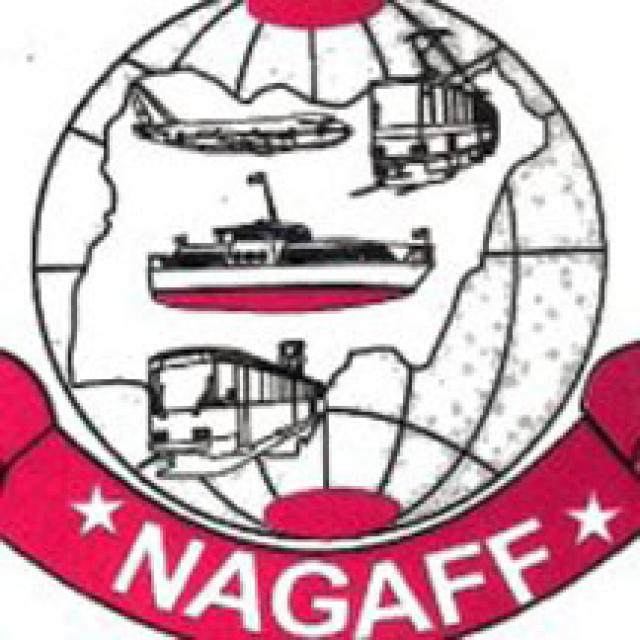The National Association of Government Approved Freight Forwarders (NAGAFF) says the Central Bank of Nigeria’s (CBN) increment on the exchange rate from N326 per dollar to N361 for imports will have a devastating effect on port activities.
Mr Increase Uche, President, NAGAFF, in an interview with the News Agency of Nigeria (NAN) in Lagos on Friday, said that it had raised a huge concern for freight forwarders.
According to him, the impact of the increased exchange rate on operations at the port at this time of COVID-19 pandemic and on issues of trying to decongest the port is not good.
READ ALSO :Lockdown: Embrace Technology to Deepen Knowledge, LASU VC tells Staff
He added that due to the fact that Form M had been previously filled with the subsisting exchange rate from the CBN, the need to meet up with the new rate would lead to delay in evacuation of cargoes at the port.
“The new increase in the exchange rate will have a very devastating impact on the freight forwarding business in the sense that the consequences will be enormous, both on the goods in the port currently and even the ones coming.
“Contracts have already been entered still on the subsisting exchange rate and with this current increase, if adopted, will have a multiplier effect on the existing contracts, on the buyers and sellers.
“It will also have a negative effect on even the freight forwarders who at times act as principal in terms of handling cargo clearance documentation.’’
Explaining further to NAN, he said: “Firstly, before one commences or initiates an international trade transaction, government policy is for the person to open and register a Form M.
“In the Form M, you will quote your exchange rate in which you want to carry out that business; that should be the subsisting rate approved by the Central Bank and Minister of Finance.
“After quoting, you enter into various contracts like that of insurance, with the carrier, between the buyer and the seller, and then draw up a budget to prosecute the business.
“If at the end of the day there is a shift, an increased exchange interest, it has thwarted the initial planning in the budget.
“To us the freight forwarders and shippers, we feel that government is not being considerate enough to understand the multiplier effect of the sudden increase, even those in trade and transport will suffer it the most,” he said.
He noted that the government was trying to have economic benefits to generate more revenue, but at the end of the day, it would disrupt the entire trade transaction.
Uche said that now the ports are already congested, people are finding it difficult to move out their cargo, adding that when this increase would be fully implemented, it would further impoverish the public, create more hardship and frustration.
He added that it could lead to more delays in taking out these cargoes because as importers try to raise money to meet up with the new exchange rate, the delay would set in.
He noted that there would be terminal charges, shipping company charges, the customs duty to pay coupled with an increase in other taxes that one needed to pay alongside the customs duty would also increase.
The NAGAFF president said there was the need for consultation with relevant stakeholders by the government as policy instruments of this nature does not help to develop the industry but would disrupt the existing system and the need to readjust.
“In the effect that one wants to access its cargo situation, but to meet different information, it will not be in the person’s advantage because the information there will bring about hardship and difficulties in concluding a contract one had started earlier.
“And looking at the port setup, the COVID-19 is also impacting negatively already at the port.
“The banks are currently not operational, shipping companies are providing skeletal services for the fact that they reduced their workforce by 50 per cent, terminals also doing the same thing.
“All these while, the Shippers Council have been trying their best to ensure that freight forwarders have access to the port to help evacuate cargoes from the port to the hinterland as an essential services provider,” he said.
Uche noted that the whole efforts being made now would be flattened.
“The intention of NSC, Nigerian Ports Authority and the Council for the Regulation of Freight Forwarding in Nigeria (CRFFN) to decongest the port at this very point will be frustrated.
“This situation calls for a roundtable between government and stakeholders to get out of this issue as the sudden increase is too much, and N35 increase, it’s really enormous.”
Uche noted that even banks that initiated the Form M would have an issue, especially when it has to do with a Letter of Credit (LC) transaction, the customers that borrowed might not meet up with the terms of the contract due to non-cargo clearance.
“We know that the government needs money due to the fall of oil price and depletion of foreign reserve.
“So many issues, even with the customs service that wants to meet their target and maybe this is the only pattern to implement, but it will adversely affect us,” he said.




 Premier League
Premier League